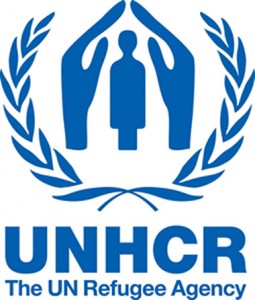World statistics on displaced persons soar
 Parts of the world are still unsafe for more people to live in their countries as figures on displaced people across the globe continues to increase.
Parts of the world are still unsafe for more people to live in their countries as figures on displaced people across the globe continues to increase.
This is probably due to wars, internal and external aggressions, poverty, climate change, unemployment and some humanitarian crisis.
According to statistics from the United Nations High Commission for Refuges (UNHCR), 74.8 million people were displaced across the world, as at 2018.
They comprised of 20.4 million refugees, 3.5 million asylum-seekers, 41.4 internally displaced people, and 3.9 million stateless people.
Dr Sarah Lamort, the Refugees Status Determination Officer of the UNHCR released these figures, when she interacted with journalists attending the five-day Media and Migration School, underway in Rabat, Morocco.
Titled, “Journalism in a Global Context-challenge Migration,” the Erich-Brost-Institut of Journalism in close partnership with the Africa Institute of Media, Migration and Development (AIMMAD), the AMI and Goethe Institute with funding from the Robert Bosch Stiftung is organising the September School.
Attended by 27 journalists drawn from Europe and Africa, the school aims at building bridges between journalists in Europe and Africa on migration.
Dr Lamort indicated that many migrants are now staying in Morocco, a country noted as a key transit point for migrants crossing to Europe. She said the UNHCR had registered 9,056 migrants in Morocco.
They include 6,244 refugees (56 percent Syrians), coming from 38 countries, and 2,812 asylum-seekers coming from 43 countries.
Dr Lamort said the UNHCR needed information about refugees and asylum-seekers going through worst forms of human rights abuses – tortures and exploitation, saying fundamental human rights of refugees and asylum-seekers ought to be protected as well.
She indicated in 2017, the UNHCR created 81 new micro-projects for 115 refugees and 80 micro-projects for 120 refugees in 2018.
This, she added was to make them self-reliance, and to enhance their socio-economic livelihood as well.
Dr Lamort said apart from voting, the fundamental human rights of refugees including rights to work, ought to be respected by countries, saying it was wrong for countries to deny refugees access to work both in the formal and informal sectors.
Source: GNA
